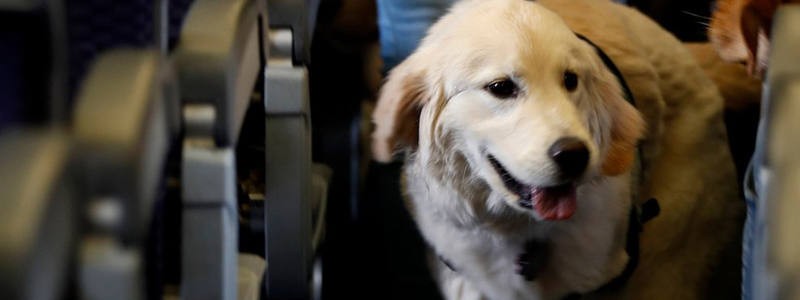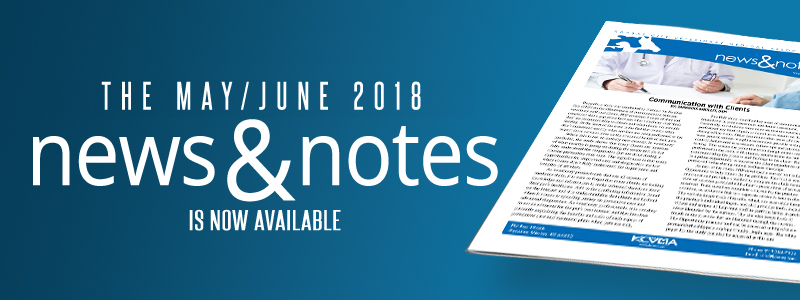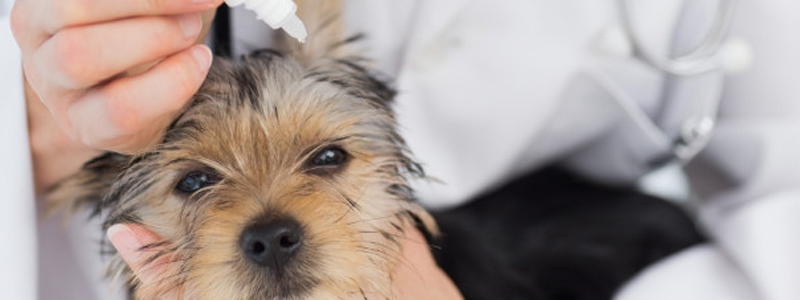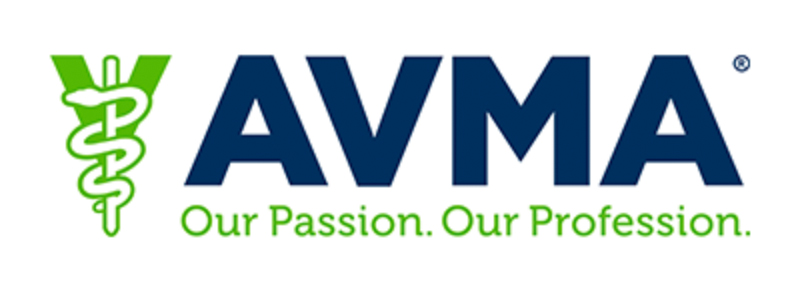BY: SAMANTHA BARTLETT, DVM
Airlines and pets have been in the news often lately. From passengers being attacked by service animals to pets dying in transit, pet travel has been a hot topic. In June of last year a Delta Airlines passenger was attacked multiple times by a 50 lb. emotional support dog that was flying in his owner’s lap. More recently, a French bulldog puppy died during a United Airlines flight in which his carrier was stuffed into an overhead bin by a flight attendant.
These stories, and others like them, have brought the issue of service and emotional support animals to the forefront of the news and airline policy makers. Both United Airlines and Delta have created new requirements involving special documentation and clearance for emotional support animals on planes. Keep in mind that customers can still fly with pets in cabin, but they must pay for a seat and the pets must meet size and weight requirements. Customers with emotional support animals and service animals can get away with fewer size and weight restrictions, within reason, and do not have to pay extra for their pet to fly in cabin.
Airlines report a large increase in the number of emotional support animals flying in 2017 compared to 2016. United reported a 15% increase in the number of support animals flying last year. Federal law requires airlines to allow service animals and emotional support animals to fly in cabin, but does give the airlines some latitude when it comes to exotic or potentially dangerous animals that may impact passenger safety. The famous example is the emotional support peacock that was denied boarding on a United flight out of Newark in February. United stated it denied boarding due to size and weight among other reasons.
In March, both Delta and United modified their policies for emotional support animals. Delta now requires that owners with emotional support animals provide a document from their veterinarian regarding the animal’s health including records, a statement from a mental health professional regarding the necessity of the animal, and a document stating the animal is trained to behave in public. United also requires a form from a mental health professional, a statement from the owner that the animal is trained to behave in public and does not present a threat and a statement regarding overall health from a veterinarian. Unlike Delta, United does not require veterinary records. When United first released its new policy, the AVMA along with AVMA PLIT reviewed the airline’s Veterinary Health Form and offered suggestions for revisions to the form that would more appropriately address the health and welfare of the animal and human passengers. The AVMA also suggested changes that would reduce the liability of the veterinarian completing the form. United took the AVMA’s suggestions into account and created a revised form that should be filled out by a veterinarian and presented to the airline 48 hours before the flight with the animal. Along these lines, the AVMA says they will be contacting other airlines to offer input on any transport changes they may be considering.
Guidance offered by the AVMA when presented with forms include the avoidance or rewording of questions that will require the veterinarian to make predictions on how an animal will react in the setting of an aircraft surrounded by passengers. It is acceptable for the veterinarian to add in behavior as described by the owner to assist the airline in determining if an animal is an acceptable risk for passengers.
In response to the increasing number of deaths associated with animals on airline flights, the Center of Excellence for Independent Validators for Live Animals Logistics (CEIV LAL) is a program created by the International Air Transport Association (IATA) to help set standards and practices to ensure the welfare of animals in cargo. According to IATA, 506,994 animals were shipped in cargo on U.S. airlines last year. The CEIV LAL program provides certification for airline programs that undergo assessment and meet the standards for quality management and operations.











